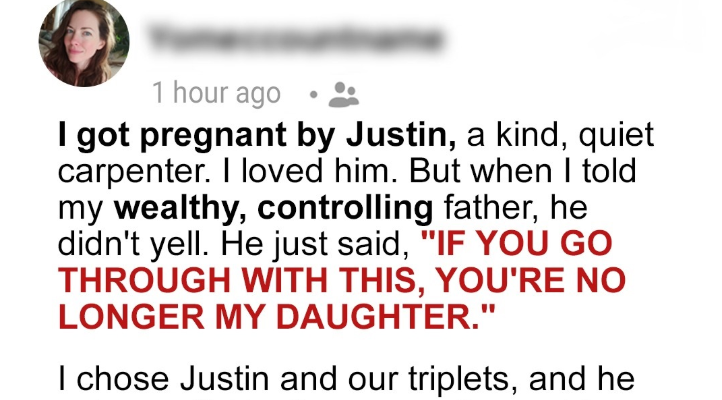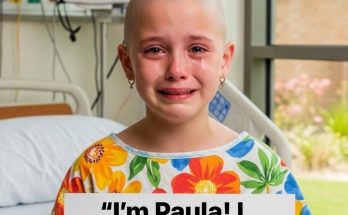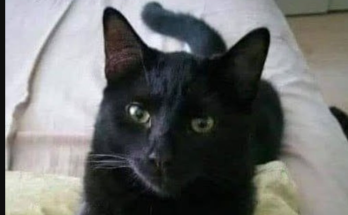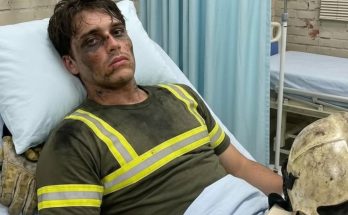When I first discovered I was pregnant—with triplets, no less—my world turned upside down. Justin, the father of my children, was a gentle and humble carpenter who treated me with nothing but kindness. I loved him deeply.
But when I shared the news with my father, a wealthy man known for his cold authority, his reaction shook me to my core. He didn’t shout or argue. He simply looked me in the eye and said:
“If you go through with this, you are no longer my daughter.”
That was the moment everything changed.
Advertisement
I chose Justin. I chose our three babies. And in doing so, I lost my father.
For three long years, silence stretched between us. Not a single word. Not a single visit. It was as though he had erased me from his life.
Then, one evening, my phone rang. His voice was sharp, almost frozen in time:
“I hear you have children. I’m visiting tomorrow. This is your final chance. If you refuse me, don’t expect to hear from me again.”
When he arrived the next day, I braced myself. He walked in confidently—until his eyes landed on something in our hallway. He stopped. His expression crumbled.
It was a framed photograph of my mother.
The picture wasn’t ordinary. My mother, at just nineteen, barefoot and radiant, perched on the tailgate of a pickup truck, her overalls splattered with paint. I had found it in a dusty box in our old attic before I left home. She had passed when I was only six years old, leaving behind only faint memories.
My father froze in front of the photo, his hands trembling as he touched the glass. His voice cracked:
“You’re her mirror image… and this house—it’s like you’ve brought her back.”
Slowly, he began to share what I had never heard before:
My mother had grown up in Asheville, surrounded by farmland and simplicity. She loved old tools, wildflowers, and a life free from extravagance. When she married my father, he promised her that kind of life. But after I was born, he became consumed with ambition. He dragged her into a grand house in Atlanta filled with marble and crystal.
“She cried every day for a year,” he admitted. “I thought it was just hormones. I didn’t see she was drowning.”
He looked at my modest kitchen—the wooden spice rack Justin had built, the chalk scribbles on the fridge from our children—and whispered:
“She would have adored this.”
That evening, my father stayed for dinner. He watched Justin grilling chicken on our small patio and the girls laughing as they played. For a moment, it felt like hope.
But after the children went to bed, he handed me an envelope. Inside were checks, estate documents, and trust papers.
“I want to buy you a proper home. One with reliable plumbing and insulation. I’ll set up a future for the children. You can’t live like this.”
I smiled faintly. “We’re doing fine, Dad.”
Advertisement
His voice hardened. “You’re not. You work nights at a bakery. Justin takes odd jobs for cash. That’s not enough.”
I pushed the envelope back. “We don’t need your money. We need your love.”
He stood up sharply. “You’re exactly like your mother. Stubborn to a fault.”
And just like that, he left. Another year of silence followed.
Then came the day that shattered me. Our daughter, Suri, fell gravely ill. She grew weak, stopped eating, and could barely stand. We spent days in clinics, desperate and exhausted.
Finally, I swallowed my pride and called my father.
“I don’t want money,” I said through tears. “I just need you. Suri’s sick.”
Within two hours, he was at the hospital. He didn’t scold me or question Justin. He simply sat by Suri’s bed, brushing her hair, reading Goodnight Moon over and over.
A week later, she was diagnosed with a rare autoimmune condition—serious but treatable.
That night, my father came home with us. He washed dishes, tucked the girls in, and even hugged Justin. From that day, something began to shift.
He started visiting weekly. Sometimes he brought groceries, other times just stories from his childhood in Lebanon—how he picked olives with his grandmother and raced through orchards barefoot. The girls adored him.
Gradually, I did too.
One evening, as Justin and I watched the children running through the yard, my father turned to Justin and said:
“I was wrong about you. You’re not just building a home—you’re building a world. She would be so proud.”
Advertisement
In time, my father became a fixture in our lives. He came to birthdays, school recitals, even cheered the loudest when I graduated with my teaching certificate.
He offered to buy us a big house again. We said no.
Instead, one day, he showed up with lumber. “I want to build a sunroom with Justin—if you’ll let me.”
Over six weekends, they built it together. It became the heart of our home—warm, full of light, with wide windows that framed the garden outside.
Today, I use that sunroom to teach neighborhood children how to read. And last year, after years of saving, Justin and I bought the house we had been renting. At closing, my father surprised us by paying the final costs as a gift.
Now, in that sunroom, hangs a photo of my mother. Below it, one of Suri, healthy and bright, laughing with paintbrushes in her hand. And beside it, a photo of my father and me—arms wrapped around each other, both with tears in our eyes.
People sometimes ask if I regret turning down his wealth. The answer is simple: never.
Because what I gained was far more valuable. I found a piece of my mother within myself. I gave my children the gift of love over money. And I gave my father something he didn’t know he had lost: a second chance.
Sometimes, love doesn’t come with grand gestures. Sometimes, it grows slowly—through time, forgiveness, and the quiet moments that matter most.
Thank you for reading 💖 If this story touched your heart, don’t forget to share it with others.




